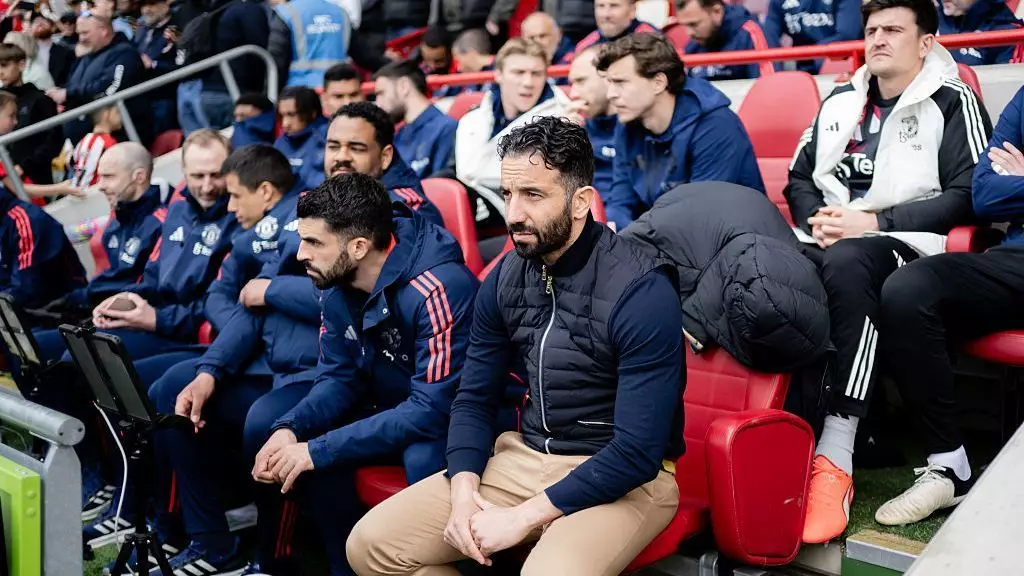In an era where immediate success is expected, Manchester United’s recent tactical decision under manager Ruben Amorim raises both eyebrows and questions. Following a nail-biting 4-3 defeat to Brentford—with a record-setting youthful lineup—Amorim stood firm in his commitment to prioritize the Europa League over the Premier League, arguing that this confident approach is necessary for the club’s future. This bold strategy reveals a broader trend in modern football where clubs are reassessing their priorities to align more closely with long-term goals.
While the Premier League continues to be the most prestigious league in the world, Amorim’s move signals a calculated gamble. By opting for a squad averaging only 22 years of age, the intent was not just to rest seasoned players but rather to develop the club’s future backbone. One could argue that this is a refreshing departure from the often-stifled youth integration seen in elite clubs. With eyes set on a Europa League semi-final, a pragmatic approach just might be the gutsy play United needs.
Embracing Youth Amidst Pressure
Amorim’s defense of his choices came amid the backdrop of a historic low—a 16th defeat in the Premier League. A critic might say he is shirking responsibility by employing such a young squad when the stakes are high, but perhaps the bigger picture unveils a deeper narrative. The resurgence of youth offers fresh energy, new ideas, and a fervent desire to prove themselves. It is an approach that leverages the club’s rich tradition of nurturing talent—a tradition that has often been overshadowed by high-profile signings and immediate results.
This strategy isn’t without its risks. The potential downside is obvious: the sequence of youthful inexperience may lead to more painful defeats. However, by placing faith in young talent, the club invests in its own future. Players like Mason Mount—who recently netted his first goal of the season—are pivotal. Mount’s optimism about focusing on the Europa League reflects a shared mentality growing within the squad. It creates an environment where players learn to thrive under pressure, an invaluable asset that may yield greater dividends in future campaigns.
Long-Term vs. Short-Term Success
As Amorim pointedly noted, the immediate results in the Premier League may not be favorable, but it is the Europa League title that poses a more significant opportunity for the club. It’s a chance to secure a much-coveted spot in the Champions League, an avenue toward financial stability and global prestige. This perspective challenges the traditional mindset that yearns for immediate triumphs. Instead, it advocates building a team that is not just competitive today but capable of sustaining success tomorrow.
The landscape of football is shifting toward a model where strategic long-term planning outweighs the occasional necessity of short-term sacrifice. While some fans may lament the disappointment of the league standing, United’s leadership seems steadfast in their belief that real progress is being made. The coming weeks will determine if this gamble pays off, but the excitement of molding a new generation is palpable. United fans may find solace in the belief that what appears to be a downturn today could pave the way for a resurgence tomorrow.

